
At a time when one extension officer may serve thousands of farmers, innovation is not a luxury. It is a necessity.
For Dr Emmanuel Odumusi, co-founder of Edfrica and a digital transformation strategist, the future of farming lies at the intersection of economics, technology, and sustainability. His journey began on his father’s cocoa and maize farm in Mowe, where he learned that agriculture could sustain families and build futures.
Necessity later pushed him into entrepreneurship, running a campus business centre where he discovered the power of digital tools. That pivot became the foundation of a career combining agriculture, business, and digitalisation. Today, Odumusi works across Africa, demonstrating how innovation, data, and practical solutions can reshape food systems for the next generation.
In this AgroCentric interview, he explains why African farmers must embrace technology, how private sector models can bridge advisory gaps, and why the human touch will always remain central to agriculture.
Could you please tell me a bit about yourself?
My name is Odumusi Emmanuel, and I’m a digital transformation strategist. My digitalisation has always focused on entrepreneurship, agriculture, and green energy. I’m also a project manager. I earned my doctorate from the Catholic University of Murcia in Spain, which stemmed from a determination to stand out and gain a global perspective on the digitalisation solutions I provide as a strategist in Africa.
I’ve been in this for about 14 years. I hold a Master’s degree in Agricultural Economics and an undergraduate degree in the same field from the University of Ibadan (UI). Agriculture is something I love. Economics is something I do, which is business. And digitalisation is the add-on that ensures it is done efficiently. The three areas —agriculture, business/economics, and innovation/digitalisation — describe what I do in terms of my career.
Did you set out to study agriculture in school for your undergraduate degree, or was it something you grew into?
I chose agriculture because of my father. He was a tailor but also farmed cocoa and maize. As a boy, I often accompanied him to the farm in Mowe, and that experience had a profound impact on me. Initially, I aspired to be a doctor or engineer, like most of my peers. But when it came time to choose a course, I asked myself, “Who around me is successful?” My father was a farmer. That inspired me to study Agricultural Economics, especially since I also liked business.
My understanding at the time was basic: planting, clearing, and selling at the market, but I saw it as a good life. Farming sustained our family, so why listen to people who said agriculture wasn’t worth studying? I had living proof otherwise. I applied to UI and made the merit list, where my academic journey in agriculture began.
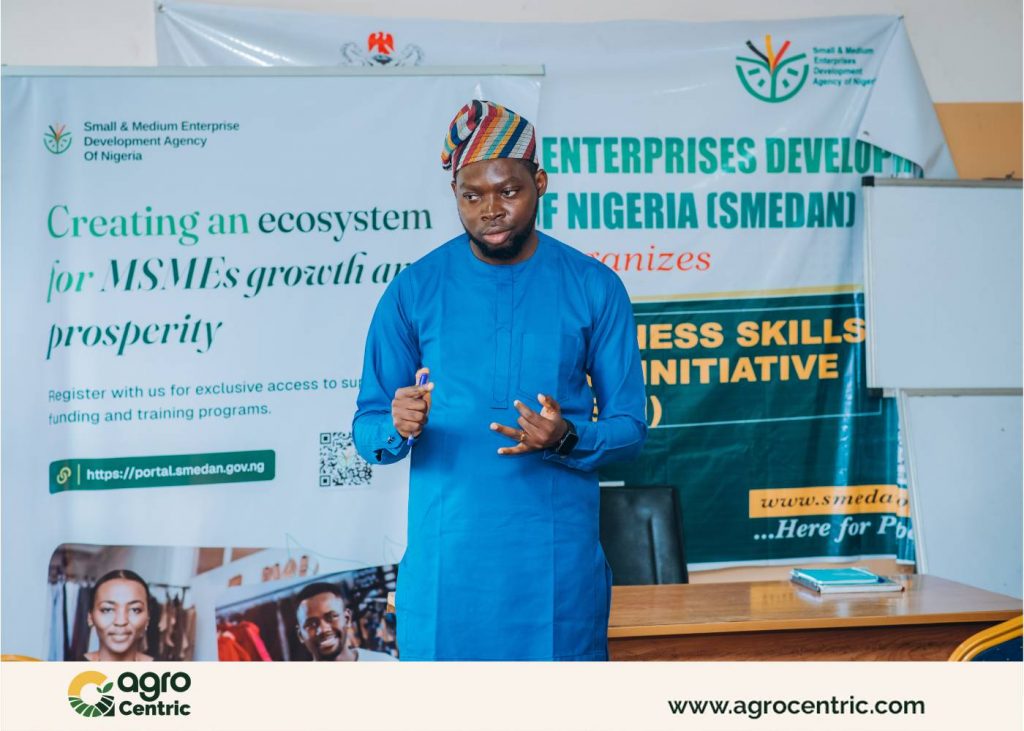
When did the scope enlarge to include entrepreneurship and innovation management?
In Nigerian universities, you start with everything, but my interest in economics quickly grew because it was about business. The turning point came after my father died. I was stranded and had to a large extent fend for myself. I began applying what I knew of economics to real life.
I learned computer graphics and web design during my third year and opened a small business centre in my hostel. That was my entry into digitalisation. Running that business exposed me to computers, software, and basic development tools. I eventually learned CSS, HTML, and the fundamentals of web development.
That experience showed me that agriculture, business, and technology cannot be separated. As I grew older, I realised that tech alone was insufficient; it needed to integrate with industry and agriculture to create real solutions. That realisation shaped my journey into entrepreneurship and innovation management.
You’ve strongly advocated digital transformation in Africa, especially in agri-tech. Describe in practical terms the role technology plays in the agribusiness sector.
Africa is behind because we are not leveraging technology, and that’s the truth. I’ve travelled across almost all West African countries and more than 20 countries worldwide; the difference I see is technology. In my penultimate year of university, 17 years ago, during farm practice, we used hoes and cutlasses, and this archaic farming method is still practised and taught in a university setting! I became frustrated with agriculture and realised digitalisation was crucial. How can we expect to modernise farming when even students are trained with outdated methodologies? That experience showed me that I could not fully commit to agriculture unless it embraced technology.
The gap between subsistence farming with hoes and cutlasses and modern farming is digitalisation. It improves efficiency, allowing farmers to produce much more in less time. With automated harvesters, you can clear large areas in a few days. Organisations like IITA, CRIN, etc, are making progress, mostly on the product side, but efficiency through technology remains essential. Traditional farming can damage farmers’ health and shorten their lifespan due to the stress it imposes.
Technology is also key to global competitiveness. Our exports struggle because products often fail to meet international standards. Farmers can’t follow proper processes when everything is manual and exhausting. With automated planters, harvesters, and irrigation systems, outputs are measurable and consistent, unlike rain-fed farming, where results are uncertain.
Waste is another challenge technology can solve. When I served in Benue State, I saw fruits rotting on the ground because there were no automated processing factories. We could be major suppliers if we had preservation technologies for mangoes and several produce that are natural to our environment. The same applies to yams from Benue and Abuja, which are seasonal and fluctuate in price due to a lack of technology and infrastructure. The more technology we adopt, the less waste we create. The more efficient farmers become, the more food we can produce.
When examining technology in African countries, which country is making the most significant efforts to improve?
Nigeria is trying. The issue is the gap, the Gini coefficient, between commercialised large farmers and the popularisation of micro-farmers. That’s really where the difference lies. But still, Nigeria, for me, is top-notch. I’ve also noticed that governments invest in one product per country. For example, in Ghana, because cocoa is a priority, the government invests a lot in cocoa farmers through industrialisation and technology, but other aspects of farming tend to suffer.
South Africa, Ghana, Rwanda, and Nigeria contribute significantly in this area. Even with Nigeria’s challenges, I must be truthful: the country has developed many semi-automated poultry systems. They’re not fully automated, but they make life much easier for farmers, though they come at a very high cost. In my view, those four countries are doing a good job across the board.
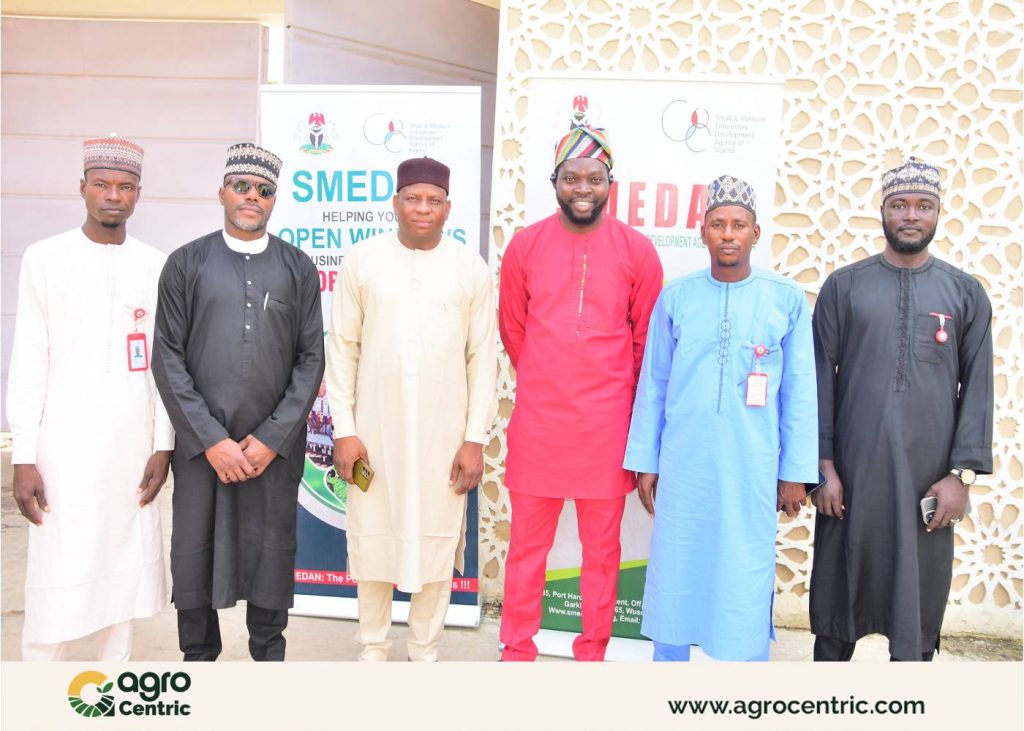
Can you share an example of an innovation or a digital tool that has made a considerable difference in how farmers or agribusinesses operate?
Yes, there are two, and I’ll break them into agriculture and economics. On the agricultural side, we now have plant disease identification apps, such as Planta, Plantix, Agrio, and many others. I don’t want to sound like I’m advertising them, but they’ve made life much easier. Farmers can simply take a picture with their phone, and AI immediately analyses the plant to show whether it needs more nitrogen or another nutrient, or whether it’s diseased.
Before AI, plant identification apps helped farmers by allowing them to take a picture and locate their position, but with AI, the process is much smarter and more detailed. For me, the prompt identification of plant and animal diseases is a very big step forward. It’s one of the real breakthroughs.
On the business side, we now have digital payment gateways like Flutterwave and Paystack, which facilitate easier transactions across Africa. Farmers can now receive payments quickly and securely. Another significant change is record-keeping. Many farmers didn’t realise they needed to keep proper records. Still, with tools like QuickBooks and other affordable accounting software, they can finally track whether they’re making money or losing it.
Then there are apps like Edfrica.org, which provide farmers with information on funding opportunities, and Bumpa, which enables them to put their stores online, allowing customers to buy directly from them. These are various digital solutions that cater to different needs, and they’ve provided real, innovative support to farmers across the continent.
Do you think many farmers have access to these innovations or can readily access the information to tap into them?
Yes and no. The real issue comes down to the farmer’s mentality and mindset. I’ve met rural farmers who cannot speak English but are enthusiastic enough to have their children or younger relatives handle the technology for them. That shows willingness matters more than literacy.
So, before blaming the government or third-party providers, I always say we should first look at the users themselves and whether they’re ready to adopt these solutions. The real question is: are farmers willing? It’s not about whether they can read or write, but whether they are willing to make an effort. There’s often resistance when it comes to agricultural extension services. Farmers sometimes feel that new technologies could disrupt their business rather than improve it. That mindset remains a significant barrier.
Some farmers simply don’t want to embrace innovation. I’ve spoken to rural farmers who told me that they believe they can continue with the same methods because their forefathers farmed in a certain way and were successful. So, it’s about mindset and readiness to change.
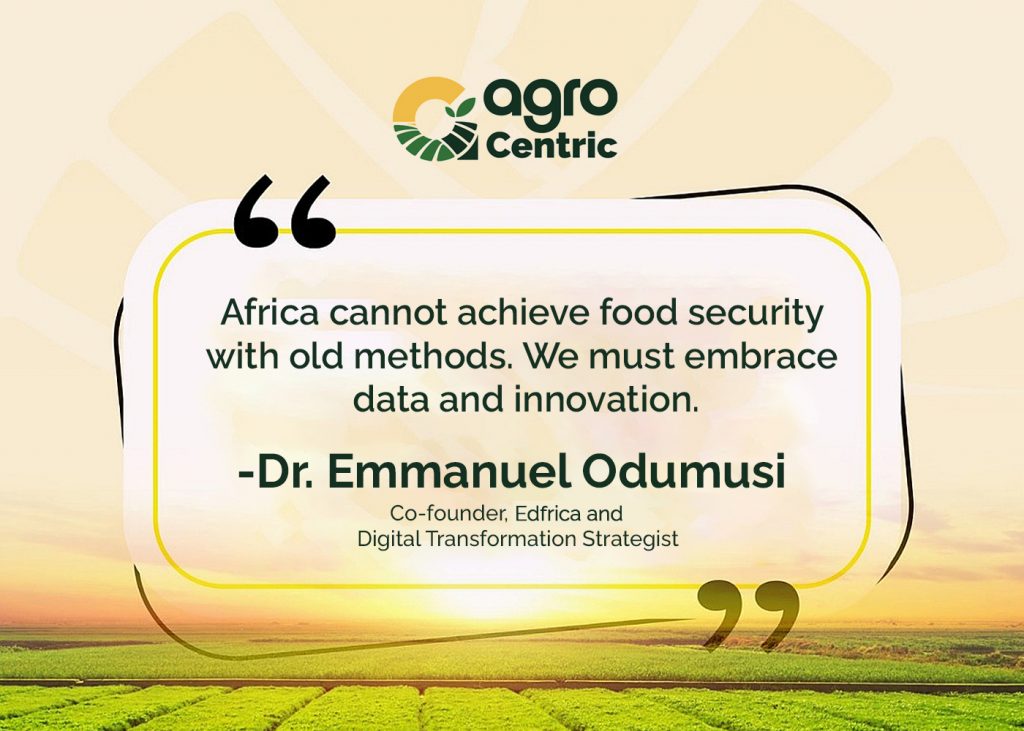
Based on your work in multiple African countries, what common challenges do you see in the agricultural value chain and market access?
This is a very broad question because every value chain has unique issues. But honestly, the number one challenge is the farmers’ mindset. We are in a digital age with numerous resources, so I don’t believe finance is the biggest problem; even market access is not the primary issue. I’ve worked with cooperatives begging farmers to participate in export aggregation programs. I’ve also worked on projects where we’ve asked people to apply for funding, yet they still hesitate.
So it’s not about lack of opportunities. It’s often about mindset: “This is not for me,” or “I’m not ready.” In rural areas, the narrative is often that “The government isn’t helping us” instead of “I’m not leveraging the resources I already have.” That, to me, is the biggest barrier. Farmers must be willing to adopt new technologies and innovations. Without that, progress will be limited.
We can start addressing other issues once we move past the mindset. Finances and market access come next, but the lack of proper regulation becomes clear afterwards. Agricultural products are not adequately regulated, and that affects exports. Before reaching the market, many products don’t go through the necessary accreditation or quality processes. This lack of regulation makes it harder for the world to trust the value of our food. If our products consistently went through the right processes, fertilisers, feeds, and quality checks, exporting would be much easier because global markets would respect the standards of African produce.
In summary, the two most significant issues are mindset and regulation. That’s why I think AgroCentric Africa is doing such an important job. What you’re putting out is changing mindsets. If a farmer reads something you’ve published and begins to see things differently, that’s already progress. On the regulatory side, governments must ensure that agricultural products do not compete in an open market without established standards. There should be accreditation and endorsement processes before products are sold. That’s how we can build both trust and competitiveness in African agriculture.
We’ll still delve deeper into regulatory and policy issues, but let’s spend more time on finance. How can digital finance and fintech solutions bridge the gap so smallholder farmers and startups can access business funding?
Fintechs are private institutions that create solutions to make money, but digital finance is broader. For me, it’s about investment readiness and access to financial tools. Most farmers lack the investment readiness, education, and learning necessary for preparedness, which hinders their ability to access funds. For example, at Edfrica, we scout global opportunities daily, funding, travel, and fellowships, and share them with farmers. We also run bi-weekly training on how to manage a business. To me, this is part of digital finance. It’s not just about paying and receiving money. It includes building a knowledge base, which involves knowing how to prepare a proposal, understanding investments, and utilising digital platforms that offer training and investment insights.
The other aspect is tools like Paystack or Bumpa. These help with record-keeping and accounting. When investors see proper financial records, such as detailed records of income and expenses, they’re more willing to fund. Without good records, significant funding is impossible. So digital finance, to me, means more than POS machines or opening bank accounts. Yes, fintechs are pushing “bank the unbanked”, and that’s valuable, but beyond just enabling transactions, people must be investment-ready, know how to use the tools, and prepare for when money comes in.
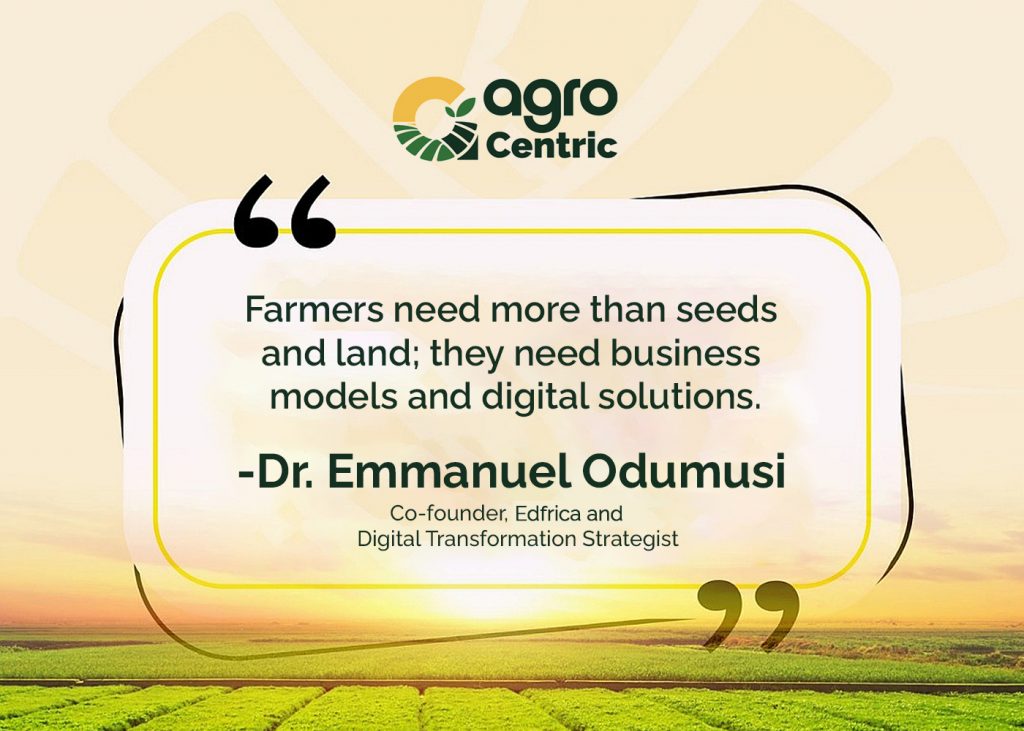
Is there sufficient capacity building and mentorship in this area, and how can it be scaled effectively to ensure increased mentorship?
It will never be enough. That’s the truth. I worked with GIZ and the FUTMINNA team on projects like SME Sabi and SabiMONI. SME Sabi was designed to give everyone financial knowledge through their phones. With CBN, we developed SabiMONI, which focused even more on financial readiness. Beyond apps, we built training and mentorship programs.
The real challenge is awareness. Many trainings and webinars are available; you’ll see plenty on Eventbrite, but the question is, are people leveraging them? That’s why initiatives like Extension Africa are important. They work to inform rural communities about opportunities. Entrepreneurs need to be aware that this knowledge exists. Tools like ChatGPT make it accessible, but many farmers are illiterate. So those providing mentorship must use a “we for we” approach, not “we for them.” This means we do it together, simplifying communication and breaking language and cultural barriers.
For example, we engage women and local-language speakers in a project with the Digital Transformation Centre, where I am supporting the first set of certified digitalisation consultants in Nigeria. Our approach to supporting the digitalisation of MSMEs matters: gender, language, and cultural context are key elements we consider in the project implementation. Take the shea butter value chain in Niger State. It’s a big industry, but cultural barriers mean women can’t sell directly; husbands often take the products, sell them, and fail to return the money to the women. Consultants must understand realities like this. One solution applied was training local women as aggregators who collect shea butter directly from the women whose movements are restricted due to religious and cultural beliefs, and aggregate the shea for export. This bypasses the gender barriers and builds trust.
The federal government recently restricted shea butter exports, recognising its potential as a major industry. But traditionally, women did the work while being excluded from profits. To address that, grassroots mobilisation is essential. You cannot succeed without the support of grassroots stakeholders. That starts with leaders, especially women leaders. Mentor and build their capacity first, then they can bring in others. Trust is crucial because it has been eroded; many NGOs and consultants made promises, took resources, and failed to deliver. When you say “capacity building,” people respond that they don’t need training; they need real support. Rebuilding trust and working through grassroots leaders is the only way forward.
Speaking more about policy and regulation, from your perspective, what’s the one policy reform that would most accelerate entrepreneurship and innovation in African agriculture?
Policies should never be created behind a desk or in a hotel conference room. That approach has never worked, and it never will. Policies must be built on the needs of beneficiaries and stakeholders. You won’t get the right people if you hold a policy workshop in a Hilton or Sheraton. You’ll get those attending for formality or enjoyment, not those directly affected.
For me, the starting point is the policymakers themselves. They must be on the field with the people before drafting anything. No policy should be made in less than six months to a year, except in emergencies. Proper research, analysis, and accurate data collection are essential; however, we often struggle with data collection in Africa. You cannot make policy without it. So, the process must be to collect the right data, be on the ground, engage stakeholders, and then formulate the policy . In short, I would first establish policies for policymakers to follow before they create policies for society and industries.
As someone who works at the intersection of academia, policy, and business, how do you balance research insights with real-world impact?
It’s painful to see agricultural economics research papers and projects lying in the trash five or ten years later. Most researchers write primarily for promotion, not impact, and you can’t blame them; many fund their own research. But I believe research must go beyond academia. As much as you write for promotion, you should also use social media to publicise findings. I work with Innov8 Hub on one of their amazing initiatives focusing on research-to-commercialisation. That means not only publishing papers but also protecting intellectual property through patents, trademarks, or copyrights, and ensuring that results are usable globally.
Social media makes this easier. If you are an authority in your field, your research will gain traction if you effectively share it. I often distil complex research into infographics or two-page white papers. Frankly, I value a white paper more than a 50-page thesis, because it’s accessible and practical. Therefore, I encourage all researchers to focus on four key areas: research commercialisation, social media dissemination, publishing in credible journals, and stakeholder engagement. That’s how I try to bridge discovery with impact.
You are also deeply involved in green finance and the green economy. What are the most significant opportunities entrepreneurs can leverage in green finance to scale their agribusinesses?
Entrepreneurs must think five to ten years ahead and understand the priorities of their donors. Green finance goes far beyond collecting plastic or doing simple “waste to wealth” projects. At its core, it’s about recycling, reusing, and preventing waste from becoming toxic.
So, you need to identify your focus. Are you tackling plastic, industrial, chemical, or energy waste, like solar panels or condemned batteries? You can’t do it all. Once you choose, align with where the sector is heading. For example, carbon emissions and credits are becoming more critical than traditional recycling. If you want funding, position your business in these future-oriented areas. Don’t just recycle paper or plastic; move toward carbon credit accounting, CO₂ reduction, and green energy innovation. That’s where real opportunities lie.
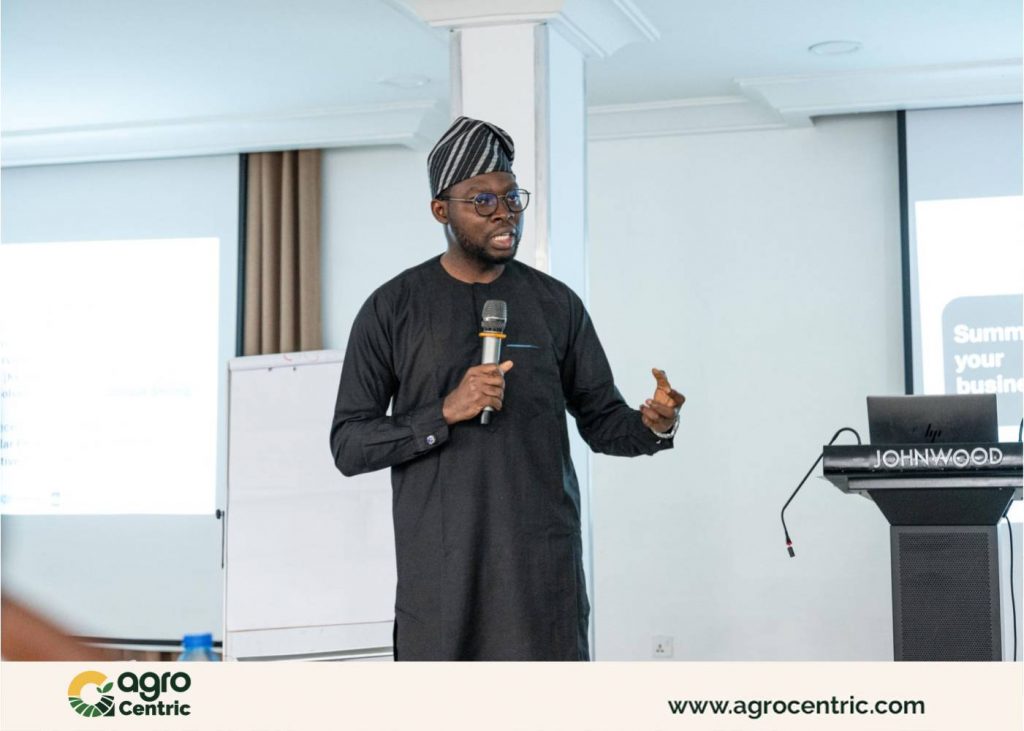
What are you most excited about in the next five years in African agribusiness and entrepreneurship?
Social media is forcing African agriculture onto a globally competitive level. Even rural farmers now have access to smartphones and platforms like TikTok and Facebook. They also see digital agriculture in practice and ask how they can do it.
I’m excited about how digitalisation is reshaping perceptions. The next generation is entering agriculture because they love it, not because they’re forced to. Historically, agriculture was looked down upon; now it is looked upon with pride. With drones, digital tools, and new technologies, young people embrace it as a career. I may not point to one single innovation, but what excites me is the wave of innovations that digital globalisation continues to unlock. Agriculture is no longer just farming; it’s technology, entrepreneurship, and becoming aspirational.
Finally, what legacy do you hope your digital transformation, innovation, and green finance work will leave for Africa’s next generation?
Knowledge, and the open-mindedness to transform. That’s the legacy I want to leave.
Thank you, Dr Emmanuel Odumusi, for sharing your story with us.
As Africa navigates food security challenges, leaders like him are showing the way. Want to learn more about the mind behind this vision? You can contact Dr Odumusi on LinkedIn to learn how he shapes Africa’s digital agriculture future.